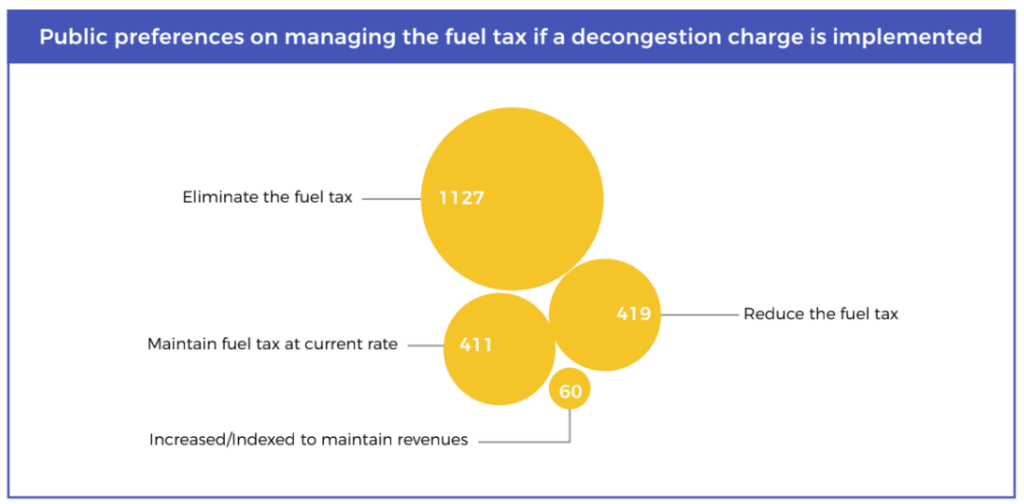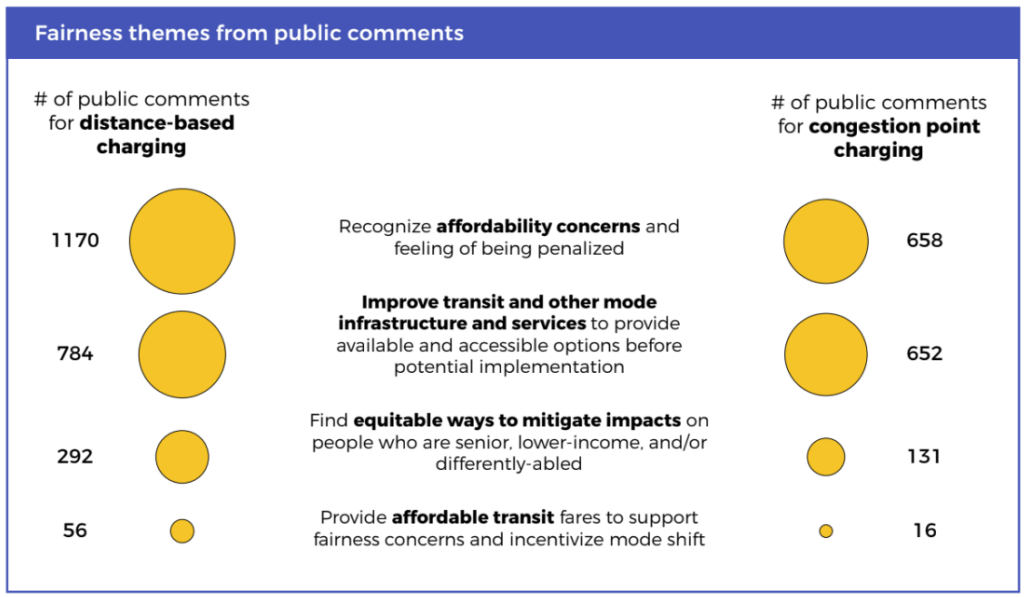

Including 17,000 residents in a discussion about traffic congestion
Anyone who has ever been to Metro Vancouver knows that traffic is a problem. The Mobility Pricing Independent Commission was established in 2017 to try and fix that problem by exploring how the mobility pricing model would look in Metro Vancouver. The commission contracted Argyle PR (formerly known as Context Research) to implement its public education and engagement program, known as the It’s Time project.
Argyle chose Ethelo as the online platform to meet its goal of engaging a broad cross-section of residents and commuters. The commission knew that the idea of paying to use roads would be contentious, so they wanted to ensure the project was done with transparency and included diverse viewpoints. With Ethelo, more than 17,000 people shared 5,000 comments in four different languages. The Argyle team could see where people were polarized on the issue and use that data to report back to the commission about areas of support and disagreement.
17,000
participants
5,000
comments

Senior consultant
Traffic congestion is a well-known issue in Metro Vancouver, with nearly 90% of residents expressing frustration at delays and over 80% reporting lost time each week. In 2017, the Mobility Pricing Independent Commission was established to explore solutions, including mobility pricing. This approach, used in cities like London and Singapore, introduces charges to reduce congestion and encourage sustainable transportation.
Recognizing the sensitivity of paying for road use, the commission prioritized transparency and diverse input through the It’s Time project, a public education and engagement initiative. Argyle PR, tasked with delivering the program, selected Ethelo as the online platform to engage a broad cross-section of residents and commuters. The platform allowed over 17,000 participants to share 5,000 comments in four languages, ensuring inclusive and meaningful engagement.
The It’s Time project had two phases. Phase One introduced the concept of mobility pricing, asking residents how traffic congestion affected them and what fairness should look like in such a system. Phase Two built on this input, seeking feedback on specific solutions, such as a distance-based charge or fuel tax adjustments.
Ethelo made the engagement process accessible with consultations available in English, Simplified Chinese, Traditional Chinese, and Punjabi. Paper surveys were also distributed to ensure representation from residents with limited internet access. All responses were integrated into Ethelo for analysis, ensuring every voice was counted.
“We were committed to democratic processes and wanted voices to be heard on decisions that impact them,” said Argyle Senior Consultant Miranda Eng. The team monitored comments for offensive language but otherwise allowed open dialogue, encouraging candid discussion from all perspectives.

The consultation revealed significant polarization. Comments ranged from labeling mobility pricing a “money grab” to supporting it as a tool for promoting sustainable transportation. Ethelo’s analysis highlighted areas of disagreement and identified common ground, providing a clear view of public sentiment.
Participants provided valuable insights into the challenges and benefits of mobility pricing. These findings were used to inform the commission’s final report, which addressed concerns directly, quoting participant feedback to explain the need for an effective decongestion charge.
“It is easy to characterize a decongestion charge as a ‘money grab,’” the report noted, “but the less you charge, the more it becomes just that. The charge must be sufficient to unlock benefits like reduced congestion and more efficient mobility.”

By fostering open dialogue and addressing criticism transparently, the project earned public trust in the process. “We weren’t scared of criticism, which helped build trust in the engagement,” said Eng. The Ethelo platform’s real-time reporting and social interaction features were critical in maintaining credibility and ensuring insights were actionable.
Argyle’s collaboration with Ethelo successfully engaged tens of thousands of residents, providing the commission with a detailed understanding of public attitudes. This inclusive approach helped shape meaningful recommendations for addressing Metro Vancouver’s long-standing traffic challenges.
“Using Ethelo as the tool for our digital engagement program was crucial,” Eng concluded. “It welcomed polarizing input and dialogue, ensuring credibility in the final report and recommendations.”

“Using Ethelo as the tool for our digital engagement program was crucial. It welcomed polarizing input and dialogue, ensuring credibility in the final report and recommendations.”
Miranda Eng